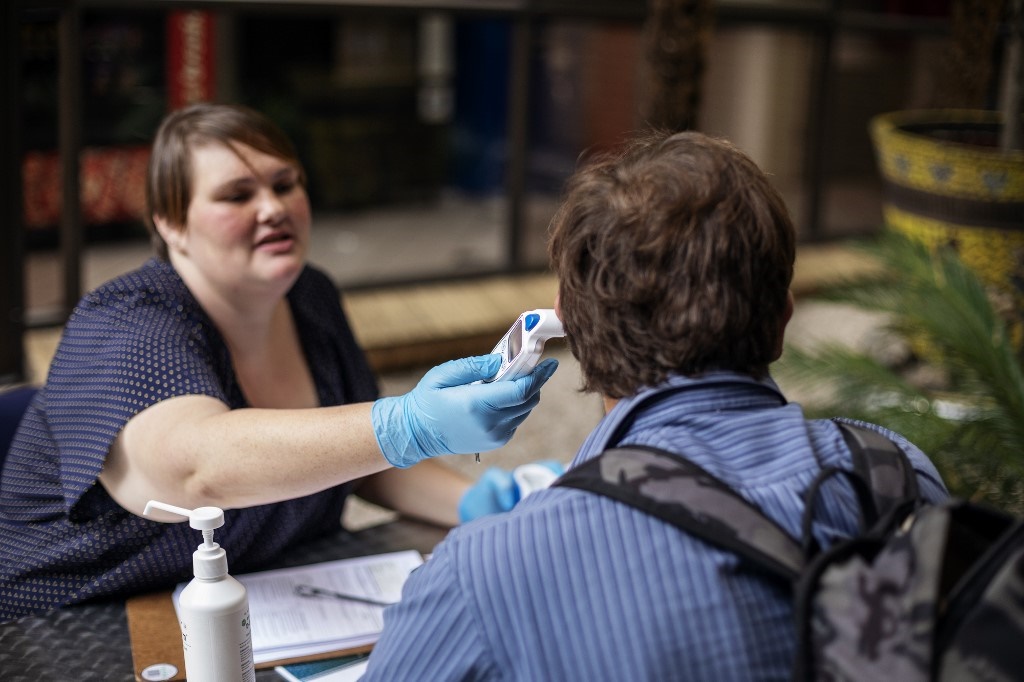 As President Cyril Ramaphosa leads the country in its fight against COVID-19, there is a sense of wartime zeal and rhetoric from our leaders.
As President Cyril Ramaphosa leads the country in its fight against COVID-19, there is a sense of wartime zeal and rhetoric from our leaders.
Sunday night’s broadcast address was a call to arms for the country, to do what needs to be done to #flattenthecurve of infections and ensure it doesn’t throttle the nation.
The enemy we are fighting is stealthy and silent.
On Monday, Health Minister Zweli Mkhize said South Africans should be ready to “go to war as means of combating the deadly coronavirus”.
“We need to move fast to reduce the speed in which it is happening. Hard combat means we have to turn ourselves into soldiers, ready to fight. Every South African should be a soldier,” Mkhize said. nstead of activating the inner Darwinian survival instinct in all of us to protect ourselves, we need to take care of the weakest in the herd.
It’s near impossible to fight that instinct which ensures survival of the fittest.
I have been wrestling with it internally and I know many others have to.
Those of us with means have been stockpiling and battening down the hatches to save ourselves. It has driven us into a frenzy of panic and insanity.
The shelves in my local Woolies are bare and it’s unjustifiable.
We must make sure we are acting for the right reasons.
Not just to ensure our own well-being but also to protect others.
We have to remember our shared humanity in this time of crisis. Make sure your staff are as prepared as you are with hand sanitiser and knowledge.
It’s a scary, confusing time and education is empowering.
We can’t afford to be turning on one another when we require cooperation the most.
In a statement this week, Secretary General of the United Nations António Guterres said that this is a time for “prudence, not panic”.
“Science, not stigma. Facts, not fear.”Even though the situation has been classified as a pandemic, it is one we can control. We can slow down transmissions, prevent infections and save lives.? But that will take unprecedented personal, national and international action.”
“Covid-19 is our common enemy. We must declare war on this virus.”
In a Facebook post that has gone viral, Dr. Christoforos Anagnostopoulos, an Honorary Senior Lecturer at Imperial College London reminds us that delaying this virus is now a public service.
“Delaying this virus is hard, but simple: try your best not to get it. You can achieve this by extreme measures of personal hygiene and moderate measures of social distancing.
“And remember this: democracies deal with emergencies by relying on personal responsibility and voluntary behavioural change. Take this responsibility seriously. And demonstrate leadership.
“It is a common misconception that leadership lies with government only. This is not true. Leadership is everywhere. Every employer, every manager, every teacher, every public servant, every parent is a leader.
“Everyone who makes decisions on behalf of other people is a leader. Every handshake is a decision. If you’re young and healthy and fall ill, you’ll most likely be OK.
“But the best way to protect the groups at risk, like the elderly and those with chronic conditions, is not to catch the virus yourself. Deny it the opportunity to use your body as a vector. Fight it.”
This is a shared responsibility for all of us.
In South Africa, we have a long and strong history of an active civic society.
This was at its most robust during the state capture period when organisations stepped into the breach when the country’s leadership failed us.
There are many ways we can be active and responsible citizens in the face of this stealthy enemy.
Wash your hands. Avoid large gatherings. Don’t travel.
Consider the elderly who are self-isolating and how you can help them. Already groups are popping up on social media sharing ideas for how to be kind and considerate to one another in this time of crisis.
Through it all try to remember your own sanity and be kind to yourself.
I’m feeling scared and anxious and confused too.
But this morning I took my kids for a long walk, keeping our distance from other humans, and then taught them about germs and soap using glitter and pepper.
Their resilience gave me perspective.
At the end of a notice sent out this weekend by Rabbi Kacev, the director of the South African Board of Jewish Education, he reminded us not to turn people into scapegoats and victims by blaming them in any way.
“Once this has come and gone all we will have left is the way in which we treated one another.”
This could not be more true.